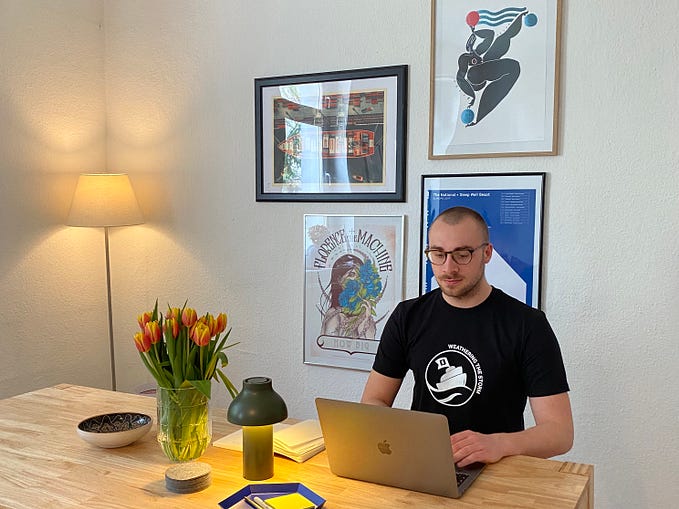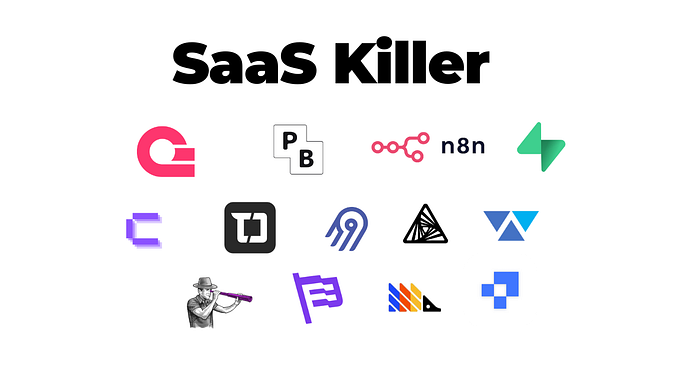Sandeep Chennakeshu of Uhnder: Five Things You Need To Create A Highly Successful Startup

First you must have conviction and an unwavering belief in what you do. When things are tough your skeptics will reinforce why they are right. Don’t listen to them — just persevere. I am reminded of a management consultant who once told me while watching a soccer game, the spectators have opinions and suggestions on what the players should do. The spectators are not in the game. They are not handling the ball. You are a player. So, play your game. Remember that opinions are free but it is you who are accountable.
Startups have such a glamorous reputation. Companies like Facebook, Instagram, YouTube, Uber, and Airbnb once started as scrappy startups with huge dreams and huge obstacles. Yet we of course know that most startups don’t end up as success stories. What does a founder or a founding team need to know to create a highly successful startup? In this series, called “Five Things You Need To Create A Highly Successful Startup” we are talking to experienced and successful founders and business leaders who can share stories from their experiences about what it takes to create a highly successful startup. As a part of this series, we had the pleasure of interviewing Sandeep Chennakeshu.
Sandeep has spent thirty-four years in three industries whose products have transformed all our lives. He was privileged to lead teams across fourteen countries that pioneered products in wireless (2G, 3G, 4G mobile phones, Bluetooth, Mobile-Satellite systems), semiconductors for consumer, automotive and medical electronics and mission-critical software for cars, medical equipment, nuclear power plants, high speed rail and industrial robots. Along the way he transformed businesses to grow profitably in a sustained manner using the principles outlined in his book “Your Company Is Your Castle”.
Thank you so much for joining us in this interview series! Before we dive in, our readers would love to “get to know you” a bit better. Can you tell us a bit about your ‘backstory’ and how you got started?
At 65 when I look back, I must say I have had a good journey. My background begins with great parents who encouraged me to follow my passions. My very first passion was mathematics. I loved the elegance of mathematics and ended up earning a PhD in electrical engineering. The next thirty-four years flew as I got immersed building products in three incredible industries that have transformed all our lives — cellphones, semiconductors, and mission-critical software.
As time went by, my passion evolved beyond math (though I have never left that entirely behind!) to building and leading engineering teams who worked across borders and around the world to develop products that would be useful to everyone everywhere. And then my passion evolved again. I wanted to go beyond engineering and so took on fixing business units that were either in trouble or not making money. The lessons learned in doing turnarounds helped me start my own consulting business where I advised multinationals, tech start-ups and investment firms, giving me the extra perspective of an outside-in look at company operations.
Today I work as the chief operating officer of Uhnder, Inc — a disruptive start-up building radar chips and software for autonomous driving and industrial robots.
What was the “Aha Moment” that led to the idea for your current company? Can you share that story with us?
I have had a few “Aha moments” and am going to talk about the first. It was in 2002. Ericsson and Sony had just formed Sony-Ericsson and I was appointed as the CTO. The joint venture struggled initially and revenue plummeted. We initially tried to copy Nokia, which was futile. Nokia had cost advantages due to scale and a superior supply chain, broader sales-channel coverage, and excellent execution. We had to do something different.
As a management team, we realized that none of our competitors were building true multimedia phones (a precursor to the modern smartphone). However, a multimedia phone required new technology. The endeavor would take major investments in innovation and time. It was a big bet, and we could not risk that it might fail. But if we succeeded, we would generate global buzz and interest. We realized consumers would love phones with color displays, cameras, music, videos, and games. We were attempting to change the way people used their phones — this was our “Aha Moment”.
The problem was that no one had successfully produced the technology to build such multimedia phones. So, Ericsson and Sony decided to ship me off to Sweden to run a large start-up within Ericsson called Ericsson Mobile Phone (EMP), to produce this technology. Thanks to my incredible team at EMP we were successful and delivered the technology to Sony Ericsson whose revenue tripled by launching, in my view, in my view, the most exciting multimedia phones in the market.
Was there somebody in your life who inspired or helped you to start your journey with your business? Can you share a story with us?
My first executive role was as the general manager of a division of Ericsson that built and sold mobile phones. I ran product development and delivery. We grew incredibly well for three years and then crashed because we made bad decisions, spending too much money based on visions of future revenue that never materialized. I took responsibility for the disaster. I asked the company to let me step down from my role to clean up the mess, which I did.
A year later the company promoted me as the CTO of Ericsson Mobile Phones which migrated to the CTO role at Sony Ericsson, which was formed a year later. A couple of years later my former bosses and mentors Dr. Nils Rydbeck and Dr. Jan Uddenfeldt approached the COO of Ericsson, Per-Arne Sandstrom, and recommended that I go to Sweden and run Ericsson’s fledgling technology business called EMP. When I was offered the job, I asked Per-Arne why he would pick me after my fiasco as a general manager just a few years earlier. He said — “We have invested heavily in your education, and we can’t let it go to waste.” Fortunately, I did not let them down and it launched my career running businesses.
What do you think makes your company stand out? Can you share a story?
I am going to answer this question regarding EMP.
The world was racing to launch 3G mobile phones and EMP was struggling to deliver the technology to our customers. EMP was bleeding cash and its most formidable competitor was investing ten times EMP’s operating budget. Customers were nervously anticipating that EMP would fail. EMP tried to subsist from one quarter to the next and stem waves of negative publicity.
Customers would not wait for us to get our act together. In my mind we had one year, or we were done.
I laid out a simple plan with three goals:
- Establish viability: turn profitable in one year.
- Get noticed: be first in the world to launch our 3G cellular technology (platform).
- Build momentum: sell one hundred million platforms, which translated to a six-fold increase in sales, in three years.
We succeeded and became the first company to launch 3G technology to the market. This early success allowed us to take significant market share within a couple of years.
What made us stand out was the laser focus and flawless execution to our strategy, despite being one of the smallest suppliers in the market with a tough cash position.
How have you used your success to bring goodness to the world?
I attribute my success to the wonderful people I worked with. A leader can have vision but you need people who will trust and follow you to realize the vision. If you are successful, then you probably had a great team. You learn much from every boss, co-worker, employee, customer, investor, and partner.
As such, I try to give back through sharing knowledge and learnings that I have gained from my experiences. I mentor people, write a book, help people get jobs through my network and am always available to provide advice to those who seek it. Knowledge gained is wasted if not shared.
You are a successful business leader. Which three-character traits do you think were most instrumental to your success? Can you please share a story or example for each?
- Conviction
- Managerial courage
- Focus
Leaders must have a vision that defines where they are, where they want to go and how to get there. Typically, they are trying to do what others have not done. Therefore, the leader must possess deep conviction that their vision is right and that they will get there come hell or high water. This requires the leader to display courage and persevere, because there will be bad periods that will test their belief, abetted by the scores of skeptics. It is the leader’s confidence, conviction, and focus that will get them through these times. I say “focus” because when people panic, they thrash about. When the chips are down, one needs to stop, take stock, and start fixing things step by step.
I first became captivated by mobile phones in the early 1980s and decided to pursue a PhD and career in this area. Many advised me that my choice would lead to an uncertain path and that I was severely limiting my future opportunities. A famous consulting company estimated that the market was small, with a million mobile phones being sold by the year 2000. Mobile phones in the early 1980s were also big, bulky, and needed to be strapped on to humans as backpacks. As such, many did not see their potential. I saw the situation differently — I felt these devices would evolve, as all technology does, and become an indispensable tool for human communications. As an immigrant student the thought of not getting a job after I graduated was daunting. I am glad I had the conviction to proceed as I did.
Good leaders run their organizations via a meritocracy. They make decisions based on what you know, not who you know. Everyone is treated based on the merit of their actions and arguments. Such consistency drives behavior, which drives culture. Vision and strategy define what needs to get done but culture determines what gets done. You cannot build a culture that delivers without having the courage to forge it.
Managerial courage means doing what is right for the company irrespective of the personal consequences.
In the movie Invictus, directed by Clint Eastwood, there is one scene that remains etched in my memory. Nelson Mandela, played by Morgan Freeman, and his chief of staff, Brenda Mazibuko, played by Adjoa Andoh, are about to drive to stop a committee from abolishing the Springboks, the South African national rugby union team — viewed by some as a vestige of apartheid. Mazibuko tells Mandela not to sacrifice his political capital by intervening. Mandela responds that the reason he was elected leader was to take such actions.
A lack of focus in one of the quickest paths to failure. Too often in my career I have seen companies begin with a focused vision and then as they hunt for quick revenue, they get defocused with distracting projects that consume their company, making them lose focus from their strategy, spend a lot of money, and get into trouble. There is a folktale that was related to me called the monkey and the gourd. A villager placed a juicy fruit in a dried gourd that had a wide base and long narrow neck. The gourd was tied to a pole. A hungry monkey smelled the fruit and proceeded to put its hand into the gourd to grab the fruit. The monkey could not pull its hand out while grasping the fruit. Unwilling to drop the fruit in the gourd and pull its hand out to move on to search for fruit on nearby trees, the monkey was soon captured by the villager. Focus does not mean pursuit of intermediate goals; it is the discipline of securing the vision.

Often leaders are asked to share the best advice they received. But let’s reverse the question. Can you share a story about advice you’ve received that you now wish you never followed?
I have made tons of mistakes, mostly by my own doing and so it is hard to blame anyone else. A long time ago I ran a business which grew faster than the market. More experienced and influential people in the company told me I was too conservative and should grow even faster. They questioned my business acumen. I got swayed and acquiesced. Deep down I knew this was wrong. Yet, I did not object as those who encouraged me to pursue this path were also in charge of my personal path in the company. We made heavy investments for the growth but the revenue never materialized. Sure, enough we lost a lot of money. A lot of people lost jobs. I blame myself, even today. Ever since, I decided that if I am accountable, I will listen to others but will only make decisions based on my own judgment and conviction. I will never do anything to just please people, even if it costs me my job.
Can you tell us a story about the hard times that you faced when you first started your journey?
After I graduated, I began a career in research and got to work beside incredibly talented people. I was soon promoted to run the research department. Life as the head of the company’s research division was prestigious and good, but I did not know how to build the products I researched. As opportunities presented themselves, I volunteered and moved into product development. The first move was the hardest, as it took a big adjustment to step out of my comfort zone. I had to recalibrate my mindset and rebuild my knowledge base. I had to get used to being the runt in the litter for a while. I moved overnight from a respected expert to being largely ignored, as I did not have the same expertise in my new role. My confidence took a beating. It was rough, but I soon learned to adapt and build a formula to deal with the change. I got up every morning at 4 am and studied before going to work. I tried to learn everything about my new job I could from books and those who would teach me. I persevered until I was confident to hold my own and contribute. With this formula I regularly rotated through different operational areas of the business and grew rapidly to become the general manager of the business. Each time, I went through the anxiety of knowing less initially but learning more with time. The breadth and depth of this learning was irreplaceable.
Where did you get the drive to continue even though things were so hard? What strategies or techniques did you use to help overcome those challenges?
I have three quotes to share that have guided me in what I do every day. When things are tough, I remind myself of these quotes.
“Success is a product of unremitting attention to purpose” — Benjamin Disraeli
“Minds are like parachutes: they only function when open” — Lord Thomas Dewar
“To conquer fear is the beginning of wisdom” — Bertrand Russell
The journey of an entrepreneur is never easy and is filled with challenges, failures, setbacks, as well as joys, thrills, and celebrations. Can you share a few ideas or stories from your experience about how to successfully ride the emotional highs & lows of being a founder”?
It is hard to run a company as the leader. You have a huge set of responsibilities. You must raise money, be prudent on how to spend it, create a strategy to realize the promises you made when raising money, forge the right culture to deliver to the strategy, oversee product definition, its creation, and delivery, build sales channels, close deals to bring in profitable revenue, ensure the whole company is executing flawlessly and build confidence amongst your stakeholders who are your investors, customers, and employees. There is a lot to manage, and many things won’t go your way. It is a roller coaster ride.
First you must have conviction and an unwavering belief in what you do. When things are tough your skeptics will reinforce why they are right. Don’t listen to them — just persevere. I am reminded of a management consultant who once told me while watching a soccer game, the spectators have opinions and suggestions on what the players should do. The spectators are not in the game. They are not handling the ball. You are a player. So, play your game. Remember that opinions are free but it is you who are accountable.
Second, stay on top of how your business is executing your strategy. You cannot be everywhere and micromanage. An effective tool that I have used is a dashboard of carefully chosen metrics. These metrics must be diagnostic, and quantitative. You don’t want metrics to be thermometers. You need metrics to be thermostats. The dashboard of metrics should give you the pulse of your business so you can take immediate action when things are not on track. If you don’t act immediately the problem grows, and you must move mountains to fix things.
Finally, learn to deal with adversity. The only way to deal with setbacks is to look forward, not back. My wife of thirty-three years wisely told me that nothing in life goes only uphill; at some point, it must go in your favor. Your attitude when facing adversity matters. It is difficult to embrace and overcome adversity, but the way you handle it builds character. When faced with adversity, deal with it or walk away from it, but never let it swallow you.
I remember the wisdom in the words of a professor friend of mine when dealing with disappointment. He told me: “When your plate is full of sandwiches, it is okay if someone takes a couple. You need to get upset if you only had one sandwich on your plate and someone took it.” I translated this as: in life you are going to create and get many opportunities; chase them, and don’t dwell on what you lost.
Let’s imagine that a young founder comes to you and asks for your advice about whether venture capital or bootstrapping is best for them? What would you advise them? Can you kindly share a few things a founder should look at to determine if fundraising or bootstrapping is the right choice?
The answer depends on the business the founder is running. There are two questions I would ask:
- Is it a business that can generate sustained free cash quickly to fund a bootstrapping model?
- What are the cash needs of the business to grow its valuation?
Bottom line is to model your business’ cash flow (in and out), as accurately and realistically as possible. Pressure tests your model by clicking deeper into your assumptions and validating them. The more thorough and honest you are in assessing how your strengths, weaknesses, opportunities, and threats can impact your projections the better off you will be. Such analysis can help you devise early on how you will combat these impacts and what it will cost you. Optimistic projections often lead to poor outcomes. Also, you cannot be too pessimistic as you might give up an excellent idea by assuming you cannot fund it.
Ok super. Here is the main question of our interview. Many startups are not successful, and some are very successful. From your experience or perspective, what are the main factors that distinguish successful startups from unsuccessful ones? What are your “Five Things You Need To Create A Highly Successful Startup”? If you can, please share a story or an example for each.
There has been a lot written on the topic. I have used the following five tenets to help me build successful businesses.
- A sticky business model
- A thorough strategy
- Align culture to strategy
- A structurally balanced business
- Flawless execution
Stickiness determines the relative power of the company to retain its customers in the face of competition. It creates a need for customers that they are not willing to trade easily — it is a compelling differentiation from other options on the market. To build such a model look for open spaces that addresses unmet needs of customers and brings them great value. Great examples are YouTube, Facebook, Google, TikTok, Uber, OYO, Airbnb who created unmet needs for their customers and brought great value.
Next, your strategy must address three questions in the affirmative:
- Does your product or service address a large enough market opportunity to earn a lot of money?
- Is your product relevant to the market — do customers really need it and will they pay for it?
- Does your company have the capability to deliver to your strategy?
The next thing is to ask yourself if your company’s culture can deliver on your strategy. Culture is a collection of ideas, values, beliefs, and behaviors exhibited by employees. To a large extent, culture is created by the company’s leadership in both who they choose to hire and how they reward and discourage certain behaviors. However, employees play a crucial role in creating culture because they need to embrace it, spread it, and own it. Hence, culture has a strong influence on execution. If strategy is what needs to get done, culture determines what gets done. You could come up with a winning strategy to transform your company, but without a culture of alignment, your implementation and execution of that strategy is destined to fail.
A structurally balanced business is one where each contributing element for success is covered. For example, having a terrific product and not having sales channels to sell it will sink your company. You need to think through every aspect of the “why, what and how” to create a pull for your product or service and make sure it is supported in good measure. Many technology companies focus on their core engineering prowess and ignore other areas and end up struggling to sell their product. You must build your company such that all elements needed for success are covered. For example, a company building a radar sensor for autonomous cars will need market and customer research, engineering, product management, program management, supply chain, manufacturing, sales and marketing, HR, finance, and customer support. In arming your company to achieve this coverage of talent, it is not about having more people but the right people.
Finally, you must execute and deliver on all your promises flawlessly. You cannot be late as the world won’t wait and your competitors certainly won’t be slow to exploit your misses. Every department in your company must be in lockstep during this execution. Just think of how formula 1 car races are won. You need a great car, a great driver, a great crew and win lap by lap. Consistent misses on your promises lead to mistrust and loss of confidence. Investors, customers, and employees do not trust management teams that miss targets. No one gives authority and money to someone who will fritter it away due to indifference, inexperience, incompetence, indolence, or inability.
What are the most common mistakes you have seen CEOs & founders make when they start a business? What can be done to avoid those errors?
A Forbes article from 2018 cites a statistic from the Small Business Administration (SBA) that only one in three businesses survive ten years. In this same article, the author cites that CB Insights did post-mortems of one hundred businesses on why they failed, and the top five reasons were: 1) no market needs for the product, 2) the business ran out of money, 3) the business did not have the right team to get the job done, 4) competition, and 5) pricing without market knowledge.
Most companies are founded by clever people with clever ideas. However, vision alone does not build a successful company. Many of the facets and details in building and running a successful company are ignored when companies opt for speed over steady and systematic construction of business elements — failure rates, hence, are alarmingly high. Many of these pitfalls can be avoided if one builds a company systematically, with structure and prudent processes, to deliver on the vision.
I, too have made such mistakes. However, every stumbling block became a stepping stone for success, as I learned and corrected such mistakes. I have captured these experiences in my book Your Company Is Your Castle. My book does not rely on any patterns or magic formulas — just solid principles and proven recipes that, if taken to heart by readers, will help them build strong businesses and in turn build themselves into strong leaders.
Startup founders often work extremely long hours and it’s easy to burn the candle at both ends. What would you recommend to founders about how to best take care of their physical and mental wellness when starting a company?
I should be the last person providing advice on this question as I don’t have a good work life balance. My spouse of thirty-three years says I have only one gear in anything I do. My engineering friends also say that I am like a series-wound motor — it runs to destruction if it does not have a load. Yet, I have never felt stress or have had physical and mental wellness issues to deal with thankfully. I believe if you enjoy what you do every day you should be OK. I also have a fantastic partner in my life who takes care of everything outside my work.
Svetoslav Roerich, a Russian painter, was a guest speaker at an event when I was in a management program at the Indian Institute of Science. He told us this story. A hunter saw a monk dancing with joy in the forest. He was surprised at the monk having fun — Monks led an austere life, did they not? So, he asked the monk what he was doing. The monk responded by asking the hunter to string his bow and hit a tree 50 yards away with an arrow. The hunter did that. The monk then asked him to hit a tree 200 yards away. The hunter obliged. The monk then said hit a tree 700 yards away to which the hunter said, “If I stretch my bow to hit that target, it will break”. The monk nodded and quietly walked away. I have followed the lesson in this story.
I have a routine each day. I get up early and go to bed early as I need enough sleep to function with clarity. I partition my day so I can devote time to my pastimes: reading things I am curious about, solving a cryptic crossword, watching a recorded cricket match. Finally, I make sure I consume only what I need and exercise to maintain my weight, which I have maintained for forty years.
You are a person of great influence. If you could start a movement that would bring the most amount of good to the most amount of people, what would that be? You never know what your idea can trigger. :-)
Contribute to female education. According to the UN, women make up two thirds of the world’s 800 million (approximately) uneducated adults. Education can help women improve their income, nutrition, health, safety, reduce childbirth mortality, and mitigate violence and discrimination they face.
We are blessed that some very prominent names in Business, VC funding, Sports, and Entertainment read this column. Is there a person in the world, or in the US with whom you would love to have a private breakfast or lunch, and why? He or she might just see this if we tag them.
Elon Musk. From what I read he and I are very different in most aspects and I would love to understand his philosophy and formula for success of which he has had plenty.
How can our readers further follow your work online?
They can read my book titled Your Company Is Your Castle: Proven Methods to Build a Resilient Business.
Readers can also contact me, via my web page (sandeepchennakeshu.com) and time permitting, I am happy to share my learnings with them. I enjoy helping people and seeing them succeed.
This was very inspiring. Thank you so much for the time you spent with this. We wish you continued success and good health!









